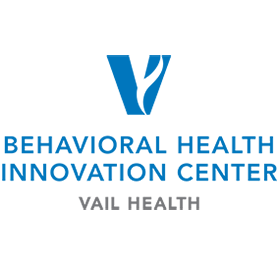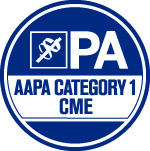
Novel Approaches to Behavioral Health Innovation: From Mesmer to Psychedelics: Appreciating the Power of Contextual Effects

The presentation will use historical and recent studies to demonstrate the power of contextual effects in relation to treatment outcomes in medicine. It will specifically address the large magnitude effects associated with treatment context in psychiatry and discuss approaches to better understanding and managing the effects.
This educational activity is designed to change learner competence and focuses on the following competency areas:
- The American Board of Medical Specialties: Patient care and procedural skills, Medical knowledge
- Nursing: Employ evidence-based practice
- Center for the Advancement or Pharmacy Education: Health and wellness, Interprofessional collaboration, Learner, Patient-centered care
- Pharmacy Technician Certification Board: Pharmacology
- Interprofessional Education Collaborative: Interprofessional Communication
- Diversity, Equity, and Inclusion: Engage in self-reflection, Value diversity in the clinical encounter
Intended Audience
This activity is designed for Psychologists, Pharmacists and Pharmacy Technicians, Physicians, Nurses, Physician Assistants, Social Workers, and other behavioral health clinicians.
Learning Objectives
As a result of participation in this educational series, members of the healthcare team will be able to:
- Summarize the concept and magnitude of contextual effects as they pertain to medical treatment outcomes
- Recognize and explain the various factors contributing to contextual effects in treatment outcome
- Utilize the knowledge of contextual effects to optimize the design of clinical trails and clinical practice in the area of interventional Psychiatry
This is a virtual event. The webinar link is available in the course, and will also be emailed to you prior to the event.
Dr. Sanacora is the George and Ester Gross Professor of Psychiatry, Director of the Yale Depression Research Program, and Co-Director of Yale’s Interventional Psychiatry Program. Dr. Sanacora’s work employs both preclinical and clinical research methodologies in attempts to expand our understanding of the underlying pathophysiology of neuropsychiatric disorders and mechanisms of effective treatment actions, with the goal of ultimately developing novel diagnostic and treatment approaches. He has served as PI on numerous NIH, foundation, and industry sponsored studies ranging from rodent models of pathogenesis, through mechanistic neuroimaging studies introducing novel methods to assess brain metabolism, to large multi-center phase III clinical trials. His personal experience over the arc of this journey has provided him with unique perspectives on the challenges that impede the successful application of neuroscience advances to neuropsychiatric clinical practice and led him to foster a diverse interdisciplinary collaborative team approach to translational neuroscience. In recognition of these efforts he recently received the 2022 Association for Clinical and Translational Sciences award for Team Science in addition to previous awards including the Anna-Monkia Stiftung international award for investigation of the biological substrate and functional disturbances of depression, the Joel Elkes Research Award for Outstanding contributions to Psychopharmacology from the American College of Neuro-Psychopharmacology.
Policy on Faculty and Sponsor Disclosure
It is the policy of the University of Wisconsin–Madison Interprofessional Continuing Education Partnership (ICEP) to identify, mitigate and disclose all relevant financial relationships with ineligible companies* held by the speakers/presenters, authors, committee members, planners, and other persons who may influence content of this accredited continuing education (CE). In addition, speakers/presenters and authors must disclose any planned discussion of unlabeled/unapproved uses of drugs or devices during their presentation(s). For this accredited continuing education activity all relevant financial relationships have been mitigated and detailed disclosures are listed below.
*Ineligible companies are those whose primary business is producing, marketing, selling, re-selling, or distributing healthcare products used by, or on, patients. The ACCME does not consider providers of clinical services directly to patients to be ineligible companies.
Name | Role | Financial Relationship Disclosures | Discussion of Unlabeled/Unapproved uses of drugs/devices in presentation? |
Gerald Sanacora | Speaker | Consultant-Abbvie, Atai, Biogen, Biohaven Pharmaceuticals, Boehringer Ingelheim International GmbH, Bristol-Myers Squibb, Clexio, Cowen, Denovo Biopharma, ECR1, EMA Wellness, Embark, Daiichi Sankyo, Freedom Biosciences, Gilgamesh, Janssen, Merck, Neurocrine, Novartis, Perception Neuroscience, Relmada Therapeutics, Sage Pharmaceuticals, Seelos Pharmaceuticals, Tetricus, Transcend Therapeutics, Usona Institute and XW Labs | Yes |
| Casey Wolfington, PhD | Clinical Director/ Planning Committee Chair | No relevant relationships with ineligible companies to disclose | No |
Marshall Thomas, MD | Planner | No relevant relationships with ineligible companies to disclose | No |
Angelia Dreher, PharmD | Planner | No relevant relationships with ineligible companies to disclose | No |
Whitney Georges, RN | Planner | No relevant relationships with ineligible companies to disclose | No |
Tracey Branch, MSW | Planner | No relevant relationships with ineligible companies to disclose | No |
Robert Brown, CPhT | Planner | No relevant relationships with ineligible companies to disclose | No |
Charles Raison, MD | Planner, Presenter | Otsuka America Pharmaceutical (Independent Contractor - Consultant), | No |
Tania Engle, PA | Planner | No relevant relationships with ineligible companies to disclose | No |
| Eric Buxton, PhD | Peer Reviewer | Johnson and Johnson International (Stock), Lexicon Pharmaceuticals, Inc. (Stock), Organon & Co. (Stock), Merck KGaA (Stock) | No |
 | In support of improving patient care, this activity has been planned and implemented by the University of Wisconsin–Madison ICEP and Vail Health. The University of Wisconsin–Madison ICEP is jointly accredited by the Accreditation Council for Continuing Medical Education (ACCME), the Accreditation Council for Pharmacy Education (ACPE), and the American Nurses Credentialing Center (ANCC), to provide continuing education for the healthcare team. |
Credit Designation Statements
American Medical Association (AMA)
The University of Wisconsin–Madison ICEP designates this live activity for a maximum of 1 AMA PRA Category 1 Credits™. Physicians should claim only the credit commensurate with the extent of their participation in the activity.
American Nurses Credentialing Center (ANCC)
The University of Wisconsin–Madison ICEP designates this live activity for a maximum of 1 ANCC hours.
Accreditation Council for Pharmacy Education (ACPE)
The University of Wisconsin–Madison ICEP designates this knowledge-based activity for 1 hour or 0.1 CEUs. Credit can be earned by successfully completing the activity and the evaluation. Credit will be provided to NABP CPE Monitor within 60 days after the activity completion.
UAN:
Pharmacist: JA0000358-9999-24-049-L99-P
Pharmacy Technician: JA0000358-9999-24-049-L99-T
Association of Social Work Boards (ASWB)
 | As a Jointly Accredited Organization, the University of Wisconsin–Madison Interprofessional Continuing Education Partnership (ICEP) is approved to offer social work continuing education by the Association of Social Work Boards (ASWB) Approved Continuing Education (ACE) program. Organizations, not individual courses, are approved under this program. Regulatory boards are the final authority on courses accepted for continuing education credit. Social workers completing this course receive 1.0 general, live continuing education credits. |
American Psychological Association (APA)
 | Continuing Education (CE) credits for psychologists are provided through the co-sponsorship of the American Psychological Association (APA) Office of Continuing Education in Psychology (CEP). The APA CEP Office maintains responsibly for the content of the programs. |
American Association of Physician Assistants (AAPA)
 | The University of Wisconsin–Madison ICEP has been authorized by the American Academy of PAs (AAPA) to award AAPA Category 1 CME credit for activities planned in accordance with AAPA CME Criteria. This activity is designated for 1 AAPA Category 1 CME credits. PAs should only claim credit commensurate with the extent of their participation. |
Continuing Education Units
The University of Wisconsin–Madison ICEP, as a member of the University Professional & Continuing Education Association (UPCEA), authorizes this program for 0.1 continuing education units (CEUs) or 1 hours.
Available Credit
- 1.00 AAPA Category 1 CME
- 1.00 ACPE Contact Hours - Pharmacist
- 1.00 ACPE Contact Hours - Pharmacist Technician
- 1.00 AMA PRA Category 1 Credit™
- 1.00 ANCC Contact Hours
- 1.00 APA CE Credits
- 1.00 University of Wisconsin–Madison Continuing Education Hours
- 1.00 Approved for AMA PRA Category 1 Credit™
Click BEGIN to register
Registration for this activity can only be completed through the ICEP Learning Portal. Attendee registrations made through any other sites cannot be honored. UW-Madison ICEP is not able to refund fees paid through unaffiliated registration sites, such as eMedEvents.com, MedConfWorld.com, EventEgg.com, and 10times.com. Please report any unauthorized websites or solicitations for registrations to [email protected].
Accessibility
The University of Wisconsin provides equal opportunities in employment and programming, including Title IX requirements. The University of Wisconsin fully complies with the legal requirements of the ADA and the rules and regulations thereof. If any participant in this educational activity is in need of accommodations, please notify us at [email protected]
Questions
For questions about registration, please email [email protected]. For general questions about this series, please contact Pam French at [email protected]

 Facebook
Facebook X
X LinkedIn
LinkedIn Forward
Forward